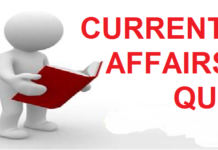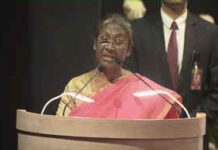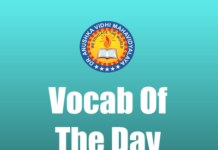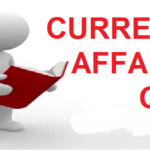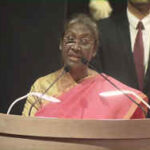Topic Of The Day:-“European variation”
Prime Minister Narendra Modi’s visit to Germany, Spain, Russia and France brings into sharp focus the shared dilemma India and Europe face with America’s shifting policies, and the resultant flux on the world stage. Mr. Modi’s first stop in Germany came a day after Chancellor Angela Merkel’s strong comments aimed at President Donald Trump, that Europe could no longer ‘depend’ on traditional partners. Europe’s disappointment with Mr. Trump at the G-7 and NATO summits was three-fold: his refusal to reaffirm NATO’s Article 5 on ‘collective defence’; his warning on the trade deficit with Europe; and his expected decision to pull America out of commitments in the Paris Agreement on climate change. For the past few months India has faced a similar disappointment as the U.S. has forged closer ties with China, indicating what Mr. Modi called a loosening of the world order, while the U.S. has targeted Indian professionals and businesses to protect American jobs. Another blow came from Mr. Trump’s comments on the Paris Accord when he blamed India and China for what he called an unfair deal. Mr. Modi’s meetings with Ms. Merkel and subsequently Spanish Prime Minister Mariano Rajoy and French President Emmanuel Macron saw those issues raised one way or another, as they tried to explore new ways to cooperate on multilateral issues, including terror, trade and climate change. In particular, Mr. Modi’s assurance in Berlin that the suspended India-EU free trade talks for the Broadbased Trade and Investment Agreement would resume soon has raised the hope that progress will be made before the EU-India summit in Delhi this year. However, while the EU and India have a clear convergence in many areas, a dependable alliance can only come from a concurrent worldview. It cannot be ignored, for example, that Chinese Premier Li Keqiang’s visit to Berlin and Brussels, also last week, saw the EU repose much more faith in Beijing than New Delhi would be comfortable with, given the current Sino-Indian tensions. European leaders praised President Xi Jinping’s leadership on connectivity and climate change. Europe perceives its single largest threat to be from Moscow, not Beijing. Mr. Modi’s attendance at the St. Petersburg International Economic Forum to unveil a new India-Russia vision statement for the 21st century along with President Vladimir Putin could cause similar discomfort in European capitals. This divergent worldview may be further highlighted this week as Mr. Modi travels to Kazakhstan to formalise India’s membership of the Shanghai Cooperation Organisation, seen as a counter-NATO coalition of Russia, China and Central Asian states. Standing at a crossroads few had expected at this stage, India will have to consider its options carefully as it decides which coalitions to forge as the U.S. overturns traditional ties in favour of transactionalism. The Centre must undertake a full review of India’s priorities and interests before Mr. Modi heads to Washington for a meeting with Mr. Trump at the end of June.


